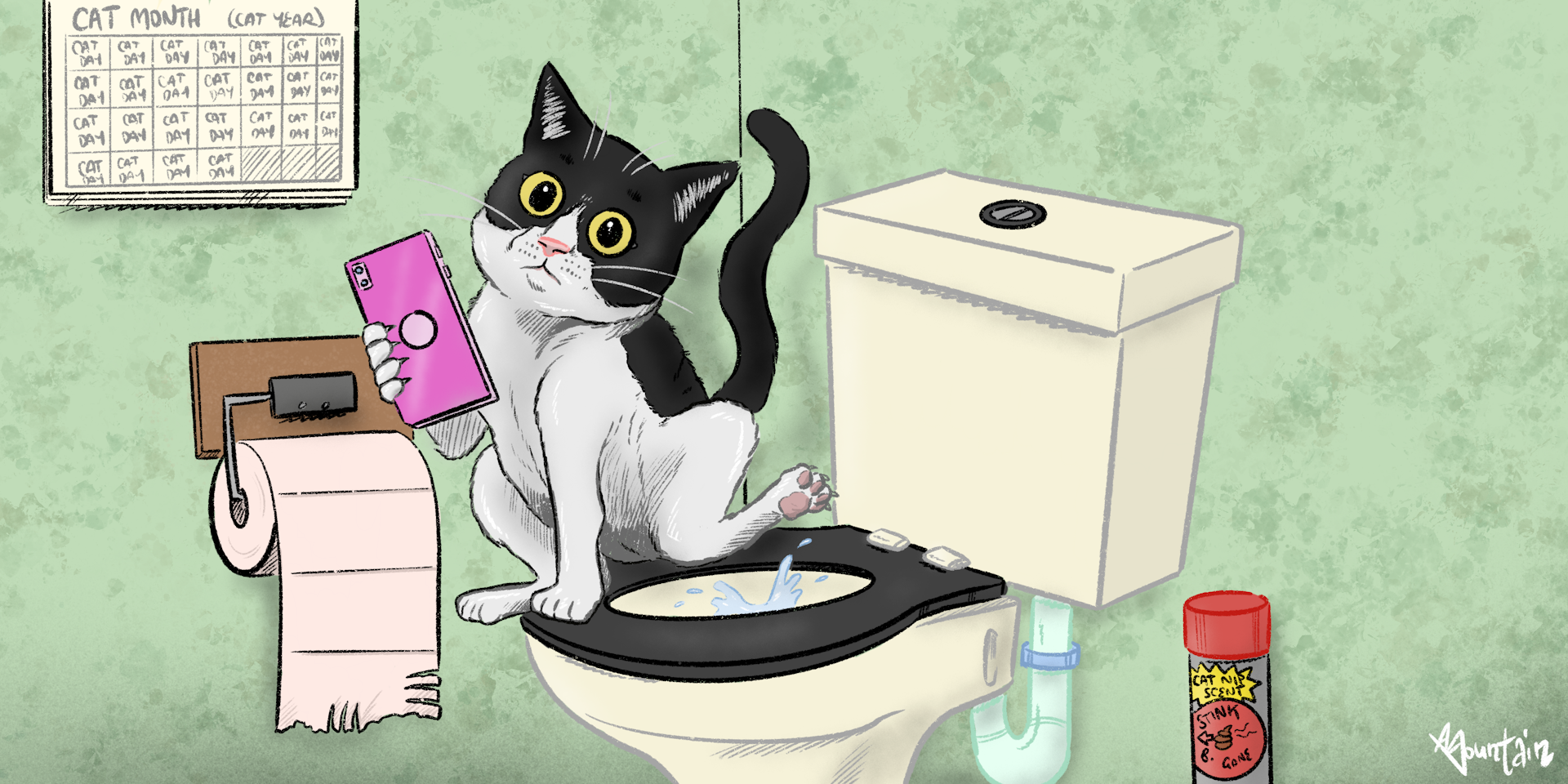Why You Shouldn't Flush Cat Poop Down Your Toilet - Maintain Your Plumbing Health
Why You Shouldn't Flush Cat Poop Down Your Toilet - Maintain Your Plumbing Health
Blog Article
This great article down below about Don’t flush cat feces down the toilet is exceptionally enjoyable. Don't skip it.

Introduction
As pet cat proprietors, it's essential to bear in mind exactly how we deal with our feline friends' waste. While it might seem practical to purge feline poop down the toilet, this technique can have destructive repercussions for both the setting and human health and wellness.
Environmental Impact
Flushing pet cat poop introduces harmful pathogens and bloodsuckers into the supply of water, presenting a substantial risk to aquatic ecosystems. These impurities can adversely influence marine life and compromise water top quality.
Health Risks
Along with environmental worries, purging feline waste can also pose health and wellness dangers to people. Cat feces may consist of Toxoplasma gondii, a bloodsucker that can create toxoplasmosis-- a possibly extreme health problem, particularly for pregnant ladies and individuals with weakened body immune systems.
Alternatives to Flushing
Fortunately, there are much safer and much more liable methods to deal with feline poop. Consider the following options:
1. Scoop and Dispose in Trash
One of the most usual method of getting rid of pet cat poop is to scoop it into a biodegradable bag and throw it in the trash. Be sure to utilize a committed litter inside story and take care of the waste quickly.
2. Usage Biodegradable Litter
Select naturally degradable pet cat trash made from materials such as corn or wheat. These clutters are eco-friendly and can be safely dealt with in the garbage.
3. Hide in the Yard
If you have a yard, take into consideration hiding cat waste in a designated area far from veggie yards and water sources. Make certain to dig deep enough to prevent contamination of groundwater.
4. Set Up a Pet Waste Disposal System
Purchase a pet waste disposal system particularly developed for cat waste. These systems utilize enzymes to break down the waste, decreasing odor and environmental influence.
Final thought
Accountable family pet ownership extends beyond giving food and shelter-- it also entails appropriate waste monitoring. By refraining from purging feline poop down the bathroom and opting for alternative disposal methods, we can decrease our environmental impact and safeguard human wellness.
Why You Should Never Flush Cat Poop Down the Toilet
A rose by any other name might smell as sweet, but not all poop is created equal. Toilets, and our sewage systems, are designed for human excrement, not animal waste. It might seem like it couldn’t hurt to toss cat feces into the loo, but it’s not a good idea to flush cat poop in the toilet.
First and foremost, assuming your cat uses a litter box, any waste is going to have litter on it. And even the smallest amount of litter can wreak havoc on plumbing.
Over time, small amounts build up, filling up your septic system. Most litter sold today is clumping; it is made from a type of clay that hardens when it gets wet. Ever tried to scrape old clumps from the bottom of a litter box? You know just how cement-hard it can get!
Now imagine just a small clump of that stuck in your pipes. A simple de-clogger like Drano isn’t going to cut it. And that means it’s going to cost you big time to fix it.
Parasitic Contamination
Believe it or not, your healthy kitty may be harboring a nasty parasite. Only cats excrete Toxoplasma in their feces. Yet it rarely causes serious health issues in the cats that are infected. Most people will be fine too if infected. Only pregnant women and people with compromised immune systems are at risk. (If you’ve ever heard how women who are expecting are excused from litter cleaning duty, Toxoplasma is why.)
But other animals may have a problem if infected with the parasite. And human water treatment systems aren’t designed to handle it. As a result, the systems don’t remove the parasite before discharging wastewater into local waterways. Fish, shellfish, and other marine life — otters in particular — are susceptible to toxoplasma. If exposed, most will end up with brain damage and many will die.
Depending on the species of fish, they may end up on someone’s fish hook and, ultimately on someone’s dinner plate. If that someone has a chronic illness, they’re at risk.
Skip the Toilet Training
We know there are folks out there who like to toilet train their cats. And we give them props, it takes a lot of work. But thanks to the toxoplasma, it’s not a good idea.

I stumbled upon that article on How to Dispose of Cat Poop and Litter Without Plastic Bags when browsing the internet. I beg you set aside a second to share this blog posting if you appreciated it. Thank you so much for going through it.
Contact Us Report this page